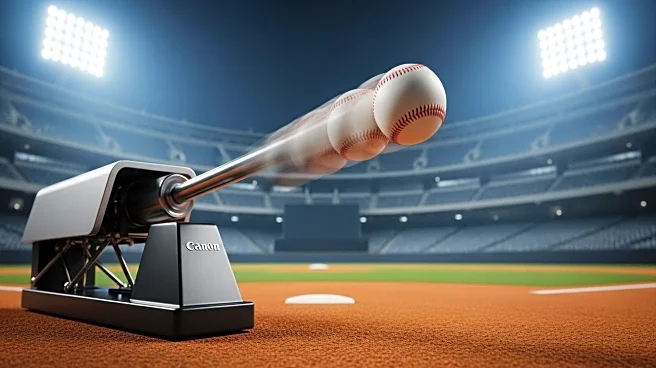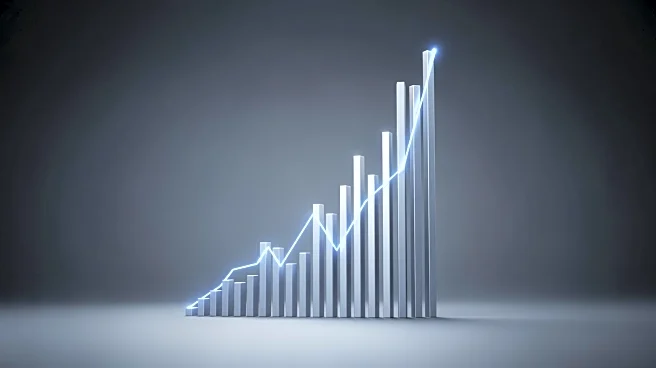What is the story about?
What's Happening?
Mason Miller, a relief pitcher for the San Diego Padres, made history during the National League Wild Card Series against the Chicago Cubs by throwing the fastest pitch ever recorded in postseason history. During Game 2, Miller's four-seam fastball reached 104.5 mph, striking out Carson Kelly in the seventh inning. This pitch surpassed the previous record held by Aroldis Chapman, who threw a 104.2 mph pitch. Miller's performance was part of a dominant outing where he struck out five of the six batters he faced, consistently throwing pitches over 100 mph. The Padres acquired Miller in a trade with the Athletics, and he has since proven to be a valuable asset, maintaining a 0.77 ERA over 23 ⅓ innings.
Why It's Important?
Mason Miller's record-breaking pitch highlights the increasing velocity and skill level in Major League Baseball, particularly in the postseason where performances are under intense scrutiny. This achievement not only underscores Miller's individual talent but also reflects the Padres' strategic decision to bolster their bullpen with high-caliber players. The Padres' bullpen has been a key factor in their success, leading MLB with a 3.06 ERA in 2025. Miller's performance could influence future trades and acquisitions, as teams may prioritize acquiring pitchers capable of delivering high-speed pitches that can change the dynamics of a game.
What's Next?
The Padres are set to face the Cubs in a decisive Game 3, where the performance of their bullpen, including Miller, will be crucial. The ability of the Padres' bullpen to maintain their dominance despite the heavy workload in previous games will be tested. The outcome of this series could impact the Padres' strategy in future games and their approach to managing player fatigue and performance under pressure.
Beyond the Headlines
Miller's achievement may spark discussions about the physical limits of pitching speed and the potential impact on player health and longevity. As pitchers continue to push the boundaries of speed, teams and medical professionals may need to consider the long-term effects on players' arms and overall health. Additionally, this development could influence training methods and the scouting of young pitchers who show potential for high-speed pitching.
















